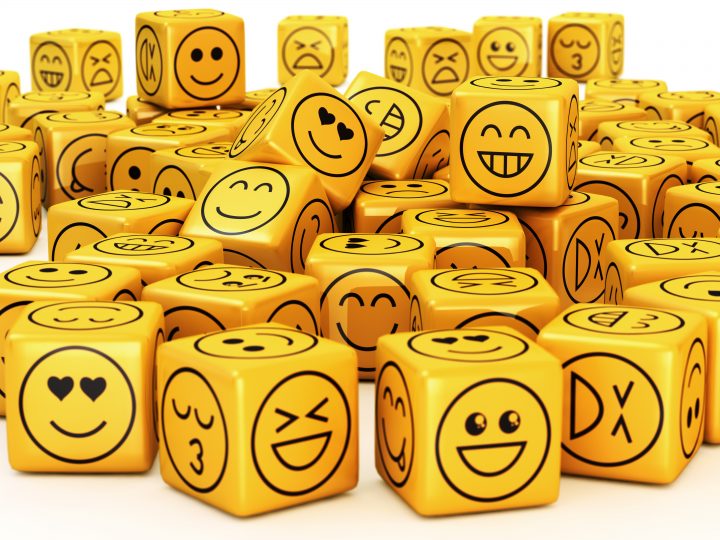
In Defense of Feeling Feelings
I have struggled with how strongly I feel things for a long time. A plan falling through sometimes feels like the end of the world; I translate constructive criticism to, “you will never be good at this, give up.” When I acknowledge the feelings, they come swiftly and relentlessly. When I refuse to acknowledge them, I enter a thought swirl that almost always ends at doom station.
For the first five or so years I recognized this sensitivity, I thought the only solution was to just not feel that strongly anymore. And it has worked to some extent. Mostly, I’m figuring out how to stop assuming that X event means Y conclusion, cue meltdown. I’m learning that constructive criticism is not the same thing as being a failure. And that maybe the world isn’t ending if I won’t see Nocturnal Animals tonight. That’s not to say that I don’t still have meltdowns, I do. Before exams last semester I thought I’d lost my wallet (as it turns out it had fallen out of my purse and onto the bedroom floor). As a result, I cried violently for about twenty minutes, 110% certain that I wouldn’t be allowed to write exams because I had no identification and therefore would fail out of law school. So this part is still very much a work in progress.
But resisting my feelings cannot be a complete solution because at its heart is the notion that my feelings aren’t legitimate and that they can (and should) be halted. And really, this isn’t surprising. Since I can remember, people around me have told me to “calm down,” “stop crying,” “be rational,” “cheer up,” and “smile.” The insistence that what I’m feeling is incorrect, inappropriate, or—my personal favourite—irrational, has been a constant for my entire life. Thankfully I’m too young to be diagnosed with hysteria, but the underlying sentiment remains that a lot of emotions, particularly if you’re a woman, are just not right.
Denying my feelings, in addition to perpetuating a crumby idea, is not realistic. As my mother has told me since I was a teenager, I have always been the same Erin Garbett, and always will be the same Erin Garbett. Sure, some things have changed, but at my core I will likely always be a bit more sensitive than most. I will probably feel things a bit more strongly and take things a bit more personally for the rest of my days, so denial is not going to work.
Recently—with the help of an amazing therapist—I’ve finally learned that yes, my feelings are legitimate. It’s not wrong to feel sad, angry, or hurt. We’ve been taught that feelings exist on a kind of spectrum between good and bad, but more and more I think feelings just are. Being really sad doesn’t make someone weak, flawed or in anyway less of a person. They’re just as worthy of taking up space as someone who doesn’t cry during SPCA commercials. Feeling feelings is ok, no matter what they are.
However, what isn’t ok is expressing feelings in a way that creates a negative impact on my life. Even if you want to kick a hole through the wall—which I’ve done—it isn’t a healthy response. So, while my feelings are legitimate, I can’t deal with them in anyway I want. Instead, I have to figure out how to recognize that these emotions are happening and experience them in a way that healthily maintains their legitimacy.
I don’t know how to do this yet. But one tactic that I’ve found works well is to talk to someone as quickly as possible. If I’m with my partner, I tell him. If I’m by myself, I either text/call a friend, call my mom, or write it down. Beyond just talking to someone, I’ve worked hard to not preface it with “I know this is silly but,” or “This is so stupid, but,” because that lowers the value of my feelings. This is SUPER difficult; the first time I did this with my therapist, I cried. It’s remarkable how ingrained the idea is that some feelings are bad and should be avoided at all costs. Often, it still feels selfish. But by acknowledging them, I avoid getting on the thought spiral train
This article has been on my mind since for quite a few months. As (mostly) future lawyers, we will be working under stressful conditions for a significant part of our work, particularly at the beginning of our careers. That we will experience emotions that are classified on the “negative” side of the spectrum—frustration, sadness, doubt, anger, etc—is all but a given. As a profession, we’re more likely to be depressed, anxious, suffer from addiction, and commit suicide. While this is an unsavoury pill to swallow, it remains the reality.
One of the most important things I think we can learn as baby lawyers is how to work through our feelings in a productive and healthy way. Whatever your personal method is, just figure it out. Read a book on mindfulness, find a professional to meet with, talk to the people around you; but the first step is to just let yourself feel feelings. From there, you can determine how you can process and express them in a way that works for you.
